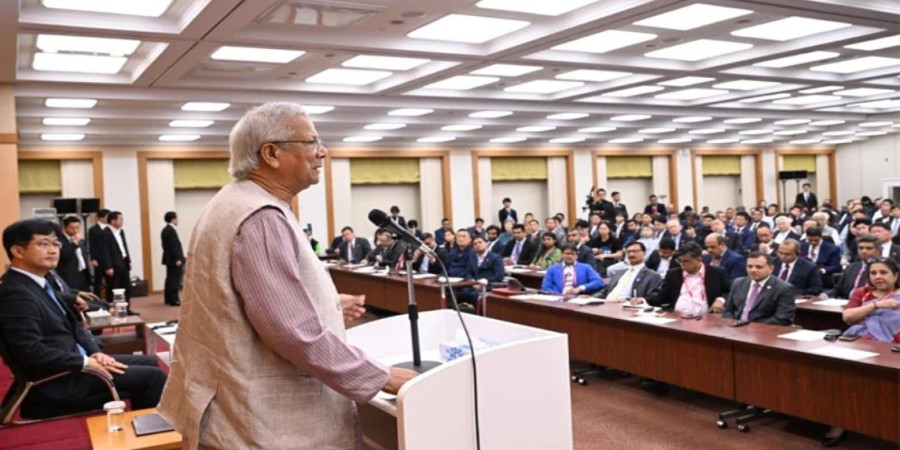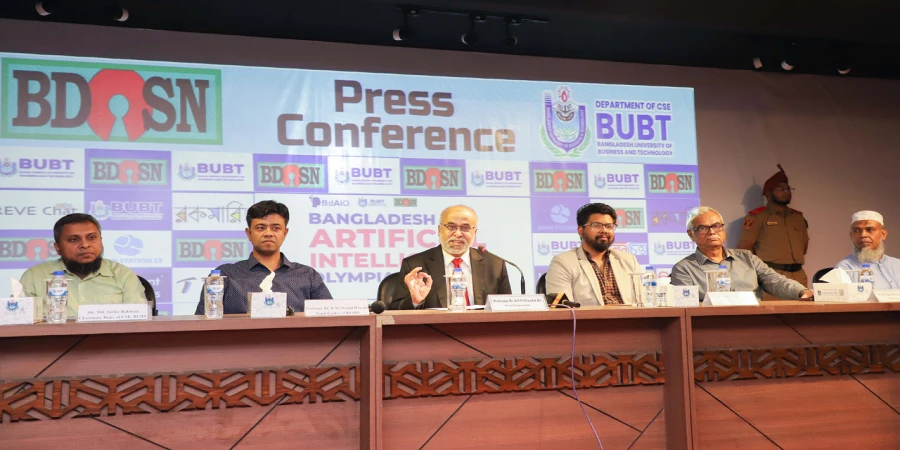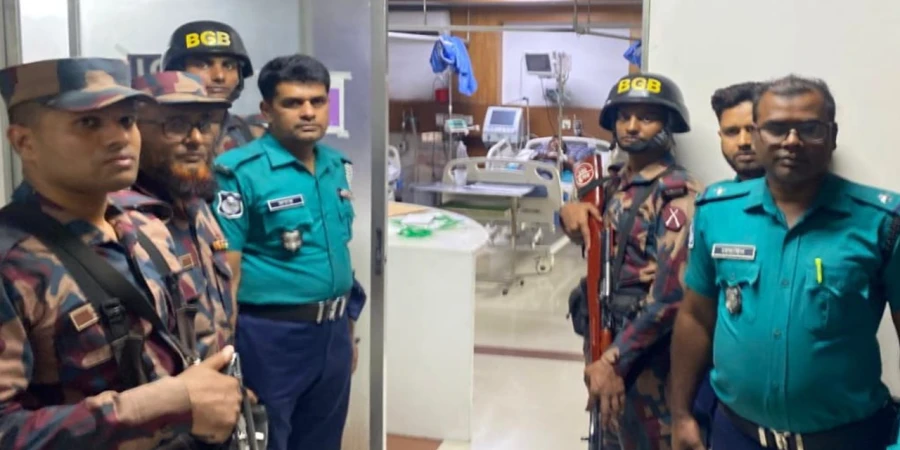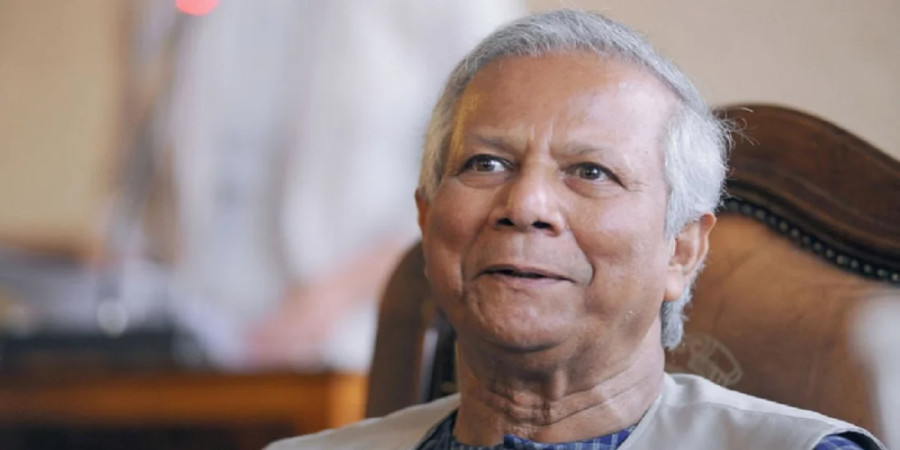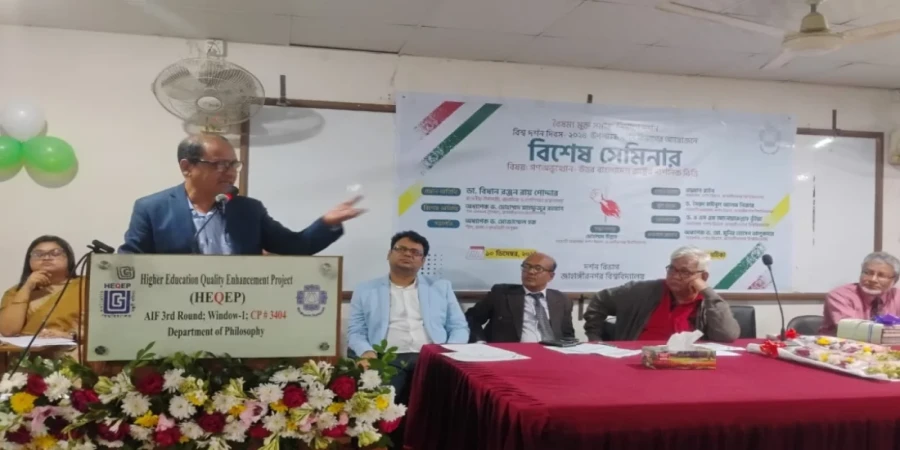
ছবি: Dr. Bidhyan Ranjan Roy Poddar, Advisor to the Ministry of Primary and Mass Education.
Interim Government's Primary and Mass Education Advisor Dr. Bidhyan Ranjan Roy Poddar recently highlighted how the aspirations of students for a popular uprising are being expressed through graffiti. Speaking at a seminar on "Philosophical Foundations of the Post-Uprising Bangladeshi State" held at Jahangirnagar University on Tuesday, December 10, he observed that wherever he travels in Bangladesh, he sees graffiti on walls that reflect the desires of the youth for revolution. These messages, according to Dr. Poddar, represent the ongoing aspirations of the masses for a transformative change. Upon viewing these, he finds himself questioning whether the responsibilities he has undertaken are sufficient to fulfill these aspirations.
He further noted that philosophers are increasingly engaged in efforts to transform the world, citing the hope that a philosopher like Plato, who has shaped transformative ideas in history, might emerge again to guide the nation.
Regarding the role of primary education, Dr. Poddar emphasized that the main task of primary education is to socialize children. He explained that socialization begins from the moment a child is born and continues throughout their life. In the context of primary schools, he observed that children are taught written and mathematical language, both of which are crucial to civilization. Written language, in particular, has revolutionized human history, allowing the transfer of knowledge from one person to another without limitations and making knowledge accessible beyond the constraints of individual memory.
He noted that nations which have succeeded in strengthening their education systems often share the feature of having a universal and unified primary education system. Reflecting on Bangladesh's journey since independence, he expressed concern that the primary education system has fragmented into nearly 14 different streams over the past five decades, preventing the realization of the dream of a unified education system. This fragmentation, he argued, is creating divisions from an early age, hindering the development of unity. Dr. Poddar suggested that implementing a universal curriculum in primary education could be beneficial for fostering greater national cohesion.
During the seminar, Professor Raihan Rain, the head of the Philosophy Department at Jahangirnagar University, welcomed the attendees and presented a historical perspective. He recalled how the first challenge of the popular uprising led to the overthrow of autocracy through the blood of students and the masses. The second challenge, according to him, is the ongoing process of nation-building and social transformation, which is still unfolding. Various reform commissions have been established, and significant reforms are taking place in key sectors such as public administration, the police, and the judiciary. He emphasized that the struggle for political and social transformation requires more than mere self-sacrifice. To win this battle, the nation needs integrity, dedication, intellectual capacity, and political wisdom.
The seminar delved into the question of the philosophical foundation of Bangladesh in the post-uprising era. Professor Rain noted that while the people of Bangladesh united during the popular uprising, divisions based on political ideologies, flags, and parties emerged afterward. He acknowledged that ideological differences are inevitable but emphasized that these differences in Bangladesh’s political culture tend to lead to extreme forms of division. He argued that the successful reform of the state will only be possible when there is a balance between fundamental rights and ideological differences.
However, he expressed concern that those who come to power in Bangladesh often create a system of internal colonization, where the majority of people are marginalized and oppressed. According to Professor Rain, those in power establish a form of colonization that affects the physical well-being of the people, depriving them of adequate food, housing, and safety. This, he asserted, represents a major challenge for modern democracy. He pointed out that the rulers of the state often establish this internal colonization through an uncanny process that exacerbates inequality and deprivation.
In his concluding remarks, Professor Rain emphasized that to resolve these issues, the country must focus on integrating its diverse ideologies and ensuring that reforms address both the people's basic needs and the broader ideological landscape. This, he suggested, could pave the way for a truly democratic and equitable society.
repoter



